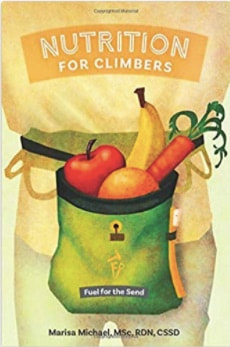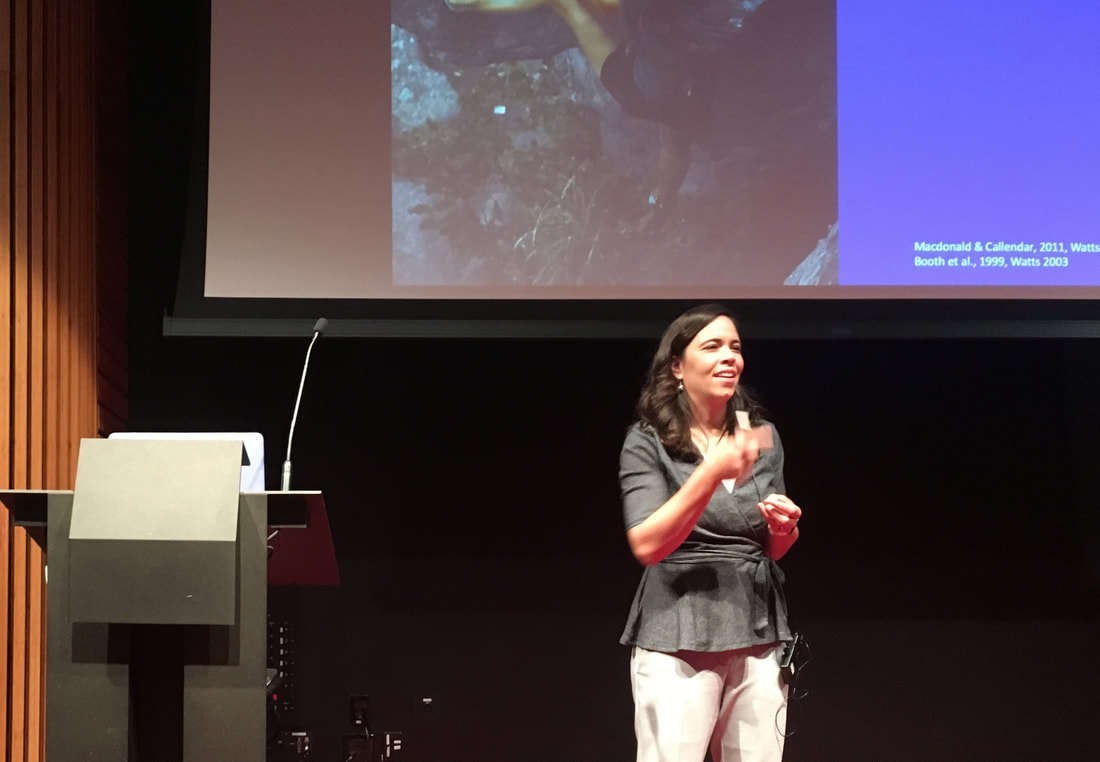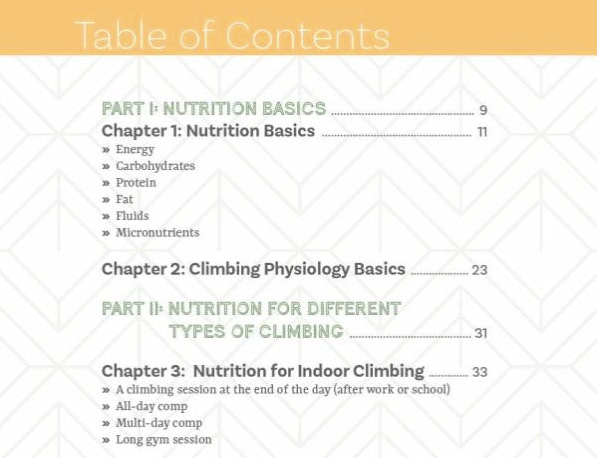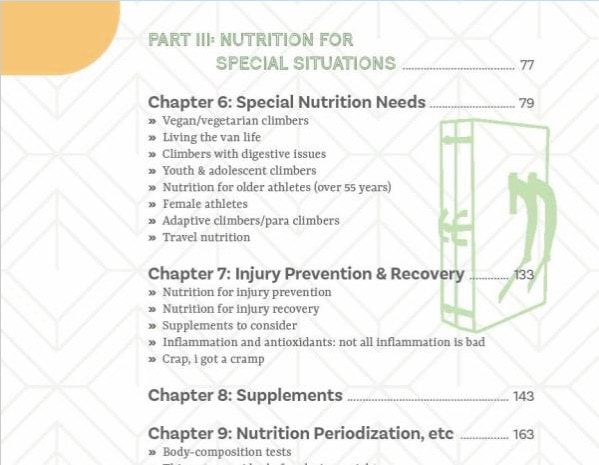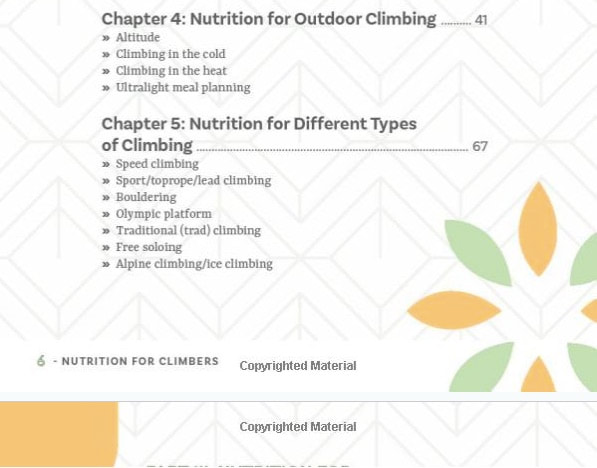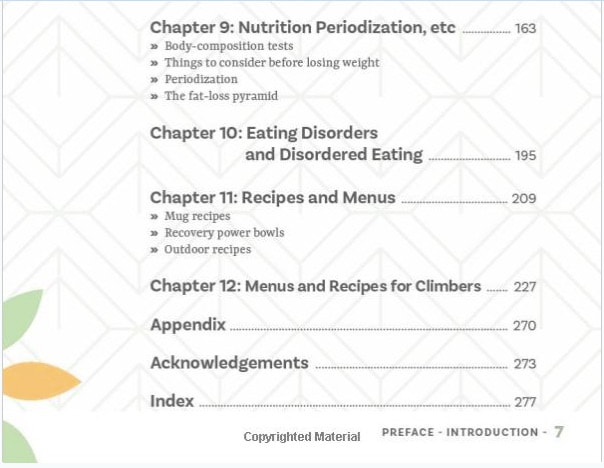You are a climber and a registered dietitian and have combined those things into a specialized focus. Before we get into the climbing-specific questions, can you fill us in on what is a registered dietitian?
This is a great question! Usually when I tell people I am a dietitian, I get a blank look and they say, “A dia-what?” A registered dietitian has to have at least a bachelor’s degree in dietetics, complete an internship, and pass an exam to become a dietitian. They then have to complete continuing education and adhere to a code of ethics to keep their license.
Dietitian is a regulated term, meaning you can’t call yourself that unless you’ve completed these requirements. It’s different than a nutritionist, which is not regulated and literally anyone can call themselves one.
Dietitians have specialized training in nutrition through a medical lens, so they can help with any kind of nutrition intervention for things like diabetes, heart disease, eating disorders, food allergies, and more.
Dietitian is a regulated term, meaning you can’t call yourself that unless you’ve completed these requirements. It’s different than a nutritionist, which is not regulated and literally anyone can call themselves one.
Dietitians have specialized training in nutrition through a medical lens, so they can help with any kind of nutrition intervention for things like diabetes, heart disease, eating disorders, food allergies, and more.
I often think of dietitians being used to help manage things like diabetes or obesity, but you focus on sports nutrition. Tell us more about that.
Sports dietitians have specific training to help athletes fuel right to achieve different performance or athletic goals. They are also really helpful for helping athletes navigate sport-specific fueling, making weight, balancing a health concern with their athletic pursuits, identifying and treating relative energy deficiency in sport, and eating disorders. You might need a sports dietitian if you’re:
- Looking for a performance edge through nutrition
- Want to know how to safely take effective supplements
- Want to know how to fuel to support training and prevent injury
- Need help with nutrition to treat injury or surgery recovery
- Suffering from an eating disorder or disordered eating patterns
- Lost your period
- Not making training gains as expected
- Feel fatigued or burnt out
- Diagnosed with a condition that affects your diet, such as diabetes
How is sports nutrition for climbing different from other sports, and how might it vary with the type of climbing you do (bouldering versus a long day of trad climbing with a big approach versus ice climbing)?
There are nutrition principles that play a role in all types of sports. For instance, no matter what sport you do, you need to eat enough to fuel your body and your sport. Climbing is no different with respect to overarching nutrition principles. But there are definitely some climbing-specific nutrition concepts!
If you’re going bouldering for a couple hours at a local gym, you might need to eat a bit beforehand if you feel hungry or it’s been a few hours since you last ate. This will help you feel energized. Having enough food helps climbers be sharp mentally and physically.
All-day trad climbing with a long approach will need a different fueling strategy. Frequent snacks and hydration can help you be strong for the entire day. Keeping your blood sugar stable and staying hydrated will not only help with the physical aspects of climbing, but also keep your mind clear for safety checks and route beta.
Ice climbing has a whole set of challenges just to keep hydrated and fueled in the cold. Extreme environments demand more of your body, and your fueling strategy should match that.
If you’re going bouldering for a couple hours at a local gym, you might need to eat a bit beforehand if you feel hungry or it’s been a few hours since you last ate. This will help you feel energized. Having enough food helps climbers be sharp mentally and physically.
All-day trad climbing with a long approach will need a different fueling strategy. Frequent snacks and hydration can help you be strong for the entire day. Keeping your blood sugar stable and staying hydrated will not only help with the physical aspects of climbing, but also keep your mind clear for safety checks and route beta.
Ice climbing has a whole set of challenges just to keep hydrated and fueled in the cold. Extreme environments demand more of your body, and your fueling strategy should match that.
What are some common misconceptions you see amongst climbers with respect to nutrition?
The idea that you need to be thinner in order to climb better is pervasive and harmful. I see far too many climbers that are already an appropriate weight, who think they need to lose weight in order to become a better climber. This often leads to disordered eating, injury, decreased performance, and a disrupted relationship with food and body. “Thinner is better” isn’t supported by any of the current climbing research, but it’s a common theme in climbers. I actually wrote up a piece in Gym Climber about this very topic!
Another common idea is that you need to omit certain food groups, or eat “clean” to climb better or be healthier. Often this approach to eating is actually stopping a climber from fueling adequately, which can lead to a number of health and performance consequences.
It’s really important to preserve your relationship with food and trust your body—if this is compromised, it’s can actually be more harmful for mental and physical health than any “junk” food you could have eaten.
Another common idea is that you need to omit certain food groups, or eat “clean” to climb better or be healthier. Often this approach to eating is actually stopping a climber from fueling adequately, which can lead to a number of health and performance consequences.
It’s really important to preserve your relationship with food and trust your body—if this is compromised, it’s can actually be more harmful for mental and physical health than any “junk” food you could have eaten.
If there is one thing we climbers should do more of, with respect to nutrition, what is it?
Eat enough food! Don’t overthink it!
How can the Common Climber benefit from working with a dietitian?
Working with a dietitian can help any climber! Athletes I work with have achieved:
- Better health measures (like blood sugar, blood pressure, and cholesterol)
- More energy during workouts and throughout their day
- Easier, simplified grocery shopping, food prep, and meal planning
- Better performance (endurance, strength, sport-specific skills)
- Improved relationship with food and body
- Less anxiety around food choices
Can you help us envision what working with a dietitian looks like? This can be done virtually right?
Yes! Video chats are all I’ve been doing right now due to COVID-19. My approach is always driven by the client’s goals. You won’t find me giving you a list of do’s and don’ts, or telling you to clean out your fridge and start eating an entirely different way. We work together to make a plan and set goals that make sense for you and your lifestyle. I empower people with nutrition knowledge and support them in implementing that in a meaningful way that will stick.
Another way to access helpful nutrition information is through on-demand courses and webinars. I’ve built a library of courses ranging from climbing nutrition, to supplements, to intuitive eating. One of my free courses includes free climbing fueling guides.
Another way to access helpful nutrition information is through on-demand courses and webinars. I’ve built a library of courses ranging from climbing nutrition, to supplements, to intuitive eating. One of my free courses includes free climbing fueling guides.
You have a master’s degree in Sports Nutrition and did your research on eating disorders amongst young climbers, what did you discover?
|
The youth climbers I studied did not eat enough to support their training and their growth. This was concerning, because adolescents need a lot of calories to help their bodies grow, build up their bone density, reach their adult height, and fully develop their brain.
There was some good news though—the climbers I studied had a very low risk for eating disorders. There needs to be much more research done, as this was a small cohort and it’s hard to tell from a single study if youth climbers are at a high risk for eating disorders. What lead you to that specific research topic?
I researched rock climbing nutrition for a project for the International Olympic Committee’s Diploma in Sports Nutrition that I was completing (which is a two-year postgraduate program). As I dug into the literature a bit more, I realized there weren’t any studies on climbers, eating disorders, or adolescent climbers. I saw a huge gap there and wanted to explore.
|
My son was a youth climber at the time, so it was a natural fit for me. I gathered data on his team and another local team to complete this research.
You also have a book focus on climbing nutrition called “Nutrition for Climbers: Fuel for the Send.” What prompted you to write a book?
|
Before writing this book, there was really no comprehensive climbing nutrition resource out there. I felt like climbers deserved more. There was no place to turn for information on all types of climbers and climbing. And I couldn’t find any resource that was speaking about eating disorders or relative energy deficiency in sport (RED-S).
I wanted to create a book that was readable, usable, easy-to-understand, and backed by science. Climbers need a book they can read that will give them good, solid information about how to fuel and care for their bodies. I absolutely love the way the book turned out. The designer and illustrator did an amazing job bringing it to life. It’s truly a beautiful book. It’s laid out in a way that you just feel welcomed when you open it. You want to stay a while and soak up all the information and stunning photos and graphics. |
Can you tell us what types of topics your book covers?
|
Nutrition for Climbers: Fuel for the Send has anything you want to know about climbing nutrition! I really put anything and everything into this book that a climber would want. My goal was to make it as useful and comprehensive as possible.
It has nutrition basics, such as what role carbohydrates, protein, and fat play in health and climbing performance. It also covers different types of climbing, such as:
|
This book also has dedicated sections on different types of climbers, like:
- Female fueling needs
- Climbers over 40
- Adaptive climbers
- Living the van life
- Travel nutrition hacks
- Youth and adolescent climbers
- Climbers with digestive issues
- Climbers with eating disorders and RED-S
Do you have any current projects or goals you are working on (be it climbing or beyond)?
My current beast of a project is working on the USA Climbing Medical Committee. We are starting the process of creating nutrition and eating disorder resources for climbers, parents, and coaches. I’m really excited about this project. Like my book, it will hopefully help fill a huge need in the climbing community and really serve climbers in a new way that hasn’t been done before.
If there are climbers suffering from eating disorders, they need support. They need information, and they need to know where they can find it. I’ve heard from too many climbers that feel so much pressure and anxiety around their body and their diet. They feel stressed, anxious, and lost. They don’t know where to turn. I am on a mission to change that.
I also created the website Nutritionforclimbers.com as a way for climbers to get more information about all types of climbing nutrition. It’s the only website I know of that is not only run by a registered dietitian, but that has resources on eating disorders, intuitive eating, and RED-S. I’m posting new content all the time and hope it can become a go-to resource for climbers.
If there are climbers suffering from eating disorders, they need support. They need information, and they need to know where they can find it. I’ve heard from too many climbers that feel so much pressure and anxiety around their body and their diet. They feel stressed, anxious, and lost. They don’t know where to turn. I am on a mission to change that.
I also created the website Nutritionforclimbers.com as a way for climbers to get more information about all types of climbing nutrition. It’s the only website I know of that is not only run by a registered dietitian, but that has resources on eating disorders, intuitive eating, and RED-S. I’m posting new content all the time and hope it can become a go-to resource for climbers.
Any last words for our readers?
Please reach out if you have questions, need nutrition help, or would like to collaborate in any way. My passion is to provide climbers with valid, science-backed nutrition information, help reframe the narrative that thinner is better, and support the climbing community. Working together can bring about amazing things!
Marisa Michael
|
INSTAGRAM: @realnutritiondietitian, https://www.instagram.com/realnutritiondietitian/
FACEBOOK: https://www.facebook.com/realnutritionllc/ WEBSITE: https://www.realnutritionllc.com/ OTHER: https://www.nutritionforclimbers.com/ EMAIL: [email protected] |

